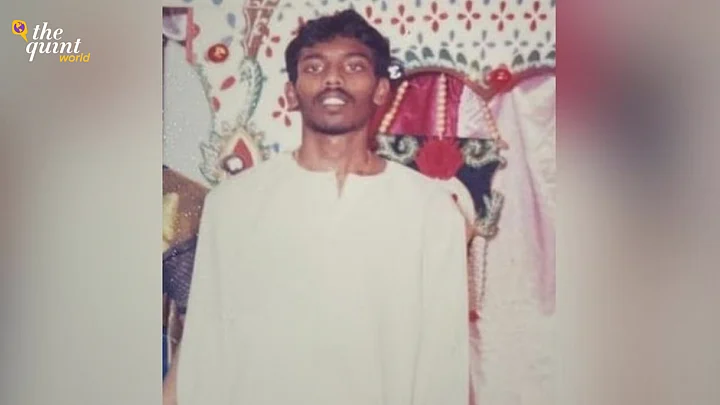On 26 April, 2023, Singapore executed Indian origin Tangaraju Suppiah for conspiracy to traffic 1 kg of cannabis. Richard Branson, not as Virgin owner, but in his capacity as a member of the Commission for Drug Policy, had urged against putting an innocent man to death as he was “not anywhere near” the seizure of the drugs from another man.
The UN Commissioner for Human Rights has urged, unsuccessfully, a moratorium on executions for drug offences in Singapore, which are being carried out due to a “myth that it deters crime.”
The evidence against Suppiah was limited to an alleged phone call with the person in whose possession the drugs were found, and a confession to a police officer which was, in essence, taken without a Tamil interpreter or the presence of a lawyer.
This is far from the bracket of rarest of the rare cases where a death penalty may be considered to be justified under Indian jurisprudence. Any abuse of the right to a fair investigation or a fair trial would, of course render the whole exercise an absolute nullity.
This did not deter the Singaporean courts or the authorities from zealously pursuing the execution.
In the World Bank listings, Singapore has a rule of law index of 95.4, ranking it 4th of 150 in the global listings, just behind three Scandinavian countries. However, the International Commission of Jurists (ICJ) and the International Bar Association Human Rights Institute (IBAHRI) has called for Singapore’s practice of executions to be inconsistent with International Law.
ICJ and IBAHRI also questioned the access to justice to those facing death row. Suppiah was unrepresented when he filed for review. Although on paper, Singapore is ought to be committed to free legal aid to those facing capital offences, lawyers who represent death row convicts face personal cost orders which obviously act as a deterrent.
There are almost no defence lawyers willing to represent death row convicts, particularly in death row cases. As a recent statement by the UIA (International Association of Lawyers) with regard to imposition of heavy fines and a five year suspension of practice for M Ravi, an Indian origin former lawyer of Suppiah points out, these fines for free speech in the advocacy for death row convicts, creates a “chilling effect…which had led to lawyers not being willing to represent death row convicts.”
Suppiah should never have been unrepresented in the later stage of his appeal and the Court of Appeal should at the very least have appointed a counsel to represent him in his late stage appeal for review
Why Singapore Is Failing 'Rule Of Law'?
Unfortunately this is a pattern. 24 death row inmates who filed a lawsuit on 1st August 2022 did not have representation, as lawyers were unwilling to represent them.
The Singapore government, and regrettably, the courts show considerable zeal in persecuting these lawyers – conflating an unsuccessful appeal or review, or a statement made in support of such an appeal or review, with an ‘abuse of process”.
The ICJ and IBAHRI have also pointed out that those on death row, overwhelmingly, are minorities. This discrimination on the enforcement of capital drug offences has been confirmed by the UN Committee on the Elimination of Racial Discrimination.
Malays, who are only 13.5 percent of Singapore’s resident population, make up 77 percent of those sentenced to death for drug offences from the year 2010 to 2021. The UN Committee asked to take concrete and effective steps to examine the criminal justice and eliminate racial disparities.
Suppiah’s case has all the marks of why Singapore is failing its rule of law commitments on criminal law, particularly capital drug offences. Confessions to police in a language that Suppiah did not understand. No proper legal representation during the confession.
Only circumstantial evidence. The law that makes the death penalty mandatory for even 500 g of possession of cannabis, a drug which is legal in many countries. The prosecution and sanctioning of lawyers who appear for death row convicts – which led to Suppiah being unrepresented in his review.
The Court of Appeal’s chiding of Suppiah for interfering with the expeditious disposal of criminal cases is, respectfully, shutting the door on even the appearance of a fair process.
The Two Track Rule Of Law System
It is difficult to understand a system which appears to have a two track rule of law system – one that is fair and judicious in respect of commercial and arbitration disputes, and in contrast the other for those facing death row or criminal prosecutions in general Rule of law requires procedural fairness to be practiced in all cases.
Suppiah’s case was weak on many standards, but certainly not one that would cross the threshold required for evidence and fairness in capital cases, even if we set aside the serious question on whether people should be put to death by a state for possession of 1 kg of cannabis.
A system that disregards such concerns not only has caused irreversible harm to Suppiah, and his grieving family, cannot see that, can it still claim to be a system rooted in the rule of law.
(Avi Singh is an advocate who specialises in transnational law and is visiting professor at the International University College, Turin. This is an opinion piece and the views expressed are the author's own. The Quint neither endorses nor is responsible for them.)
